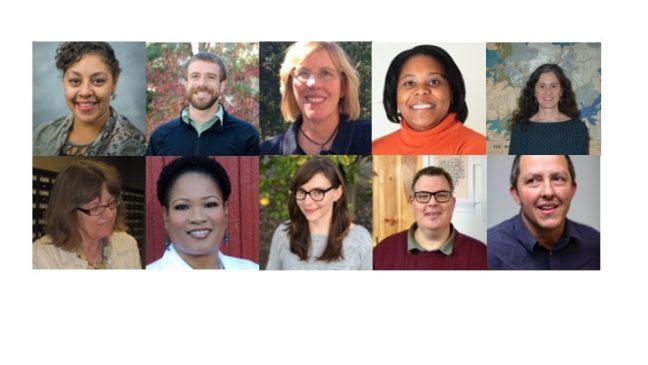A University of Wisconsin-based multi-year project focused on anti-racism education in the sciences and medicine recently received the $5 million Andrew W. Mellon Foundation award.
The project, named Humanities Education for Anti-Racism Literacy in the Sciences and Medicine, was selected as one of 16 to win the Andrew W. Mellon Foundation’s Just Futures Initiative competition. UW professor in the History Department and the Nelson Institute for Environmental Studies Elizabeth Hennessy will lead the project.
Hennessy, along with other members of the HEAL leadership team, said in a press release on Jan. 15 that she started the project with hopes of bringing together community members of all backgrounds and to address the lack of awareness of the history of racism in science and medicine.
“The HEAL project aims to do just that — to work toward healing long histories of racism at the UW,” Hennessy said. “A lot of great work is already being done on campus, and we want to complement it by bringing in humanities perspectives and pedagogical tools, particularly related to the histories and cultures of scientific disciplines.”
HEAL hopes to address the scope of racist history in all sectors, ranging from academia to industry.
According to UW News, this project will consist of a few different phases, starting with research and moving on to implementation in classes at UW.
“Given the histories and specificity of anti-Black racism and indigenous erasure in higher education and STEMM fields in particular, this project is focused on learning primarily from the experiences of Black and Native peoples’ lived experiences to improve anti-racism education in the sciences and medicine to create a more equitable university,” the HEAL project leadership team said in a press kit released Friday.
Hennessy explained the outcome expected from this project is an equitable, increased education of all STEMM students on the histories of systemic racism.
HEAL is similar to a 2002 UW project that led to the creation of the Women in Science & Engineering Leadership Institute.
WISELI Executive Director Jennifer Sheridan said the organization strives to promote diversity.
“We consider ourselves to be more generally promoting diversity in the UW-Madison faculty overall — not just gender diversity, but certainly racial and ethnic diversity and not just in STEM either,” Sheridan said.
Sheridan expressed excitement for the emergence of HEAL as another project to increase diversity and equitability at UW, especially since HEAL focuses more on student education while WISELI traditionally focuses on faculty and staff.
“I know a lot of engineering students when they have to take their ethnic studies requirement — they aren’t always the most attentive students in those courses,” Sheridan said. “They don’t understand the connection to their own scientific education … so you can imagine that a course like this that is talking about diversity in a science field would engage them more and that would just benefit our whole campus.”
WISELI uses UW as a “living laboratory” to study gender equity, diversity and climate, implement evidence-based solutions and measure success.
Sheridan studied these topics long before the HEAL project and explained that based on survey results and past research, there is more to be done and she is hopeful HEAL can bridge some of these gaps.
“I know of survey results that you can look at … and you can just see these persistent gaps … and you certainly see the gaps in our racial and ethnic minority faculty staff and students all across the board,” Sheridan said. “Feeling less respected, feeling less included, more isolated — those kinds of issues, and that’s what leads to attrition … so working on that environment is so important.”
The Andrew W. Mellon Foundation’s grant for the HEAL project will support the project’s goals for the UW campus and beyond. Hennessy and her team hope to use the grant to increase diversity on campus and increase awareness of racist histories in the sciences and medicine.
While HEAL isn’t the first project on campus aimed at increasing diversity, it has a unique approach to bringing equity through humanities perspectives while relating the education to the history of scientific disciplines.
“We seek to be socially impactful on and beyond the UW-Madison campus, in the Madison community and across Wisconsin, as well as in the STEM community at a national level, through working with students and educators in public school systems, our community partners and scientific societies,” Hennessy said.
Update:
HEAL member and UW Associate Professor Christy Clark-Pujara is aiding to create a course for STEMM undergraduate students to help them understand how anti-blackness and anti-Indigeneity has shaped the disciplines students are in, and how racism and the exclusion of native peoples are have shaped the UW community.
Clark-Pujara said, “One of the things I would like to do in that course — which is really about understanding systemic racism and institutional racism and how that shapes various disciplines in STEMM — is to give it a local flavor: to talk about the removal of the HoChunk people in Wisconsin, to talk about how the university is founded up on native burial grounds and how it has been a hostile place for most of its history for both students of Native and African descent, so that they understand this is something that happened as a part of our history, and what we can do as members of the community to help rectify and heal that process.”


